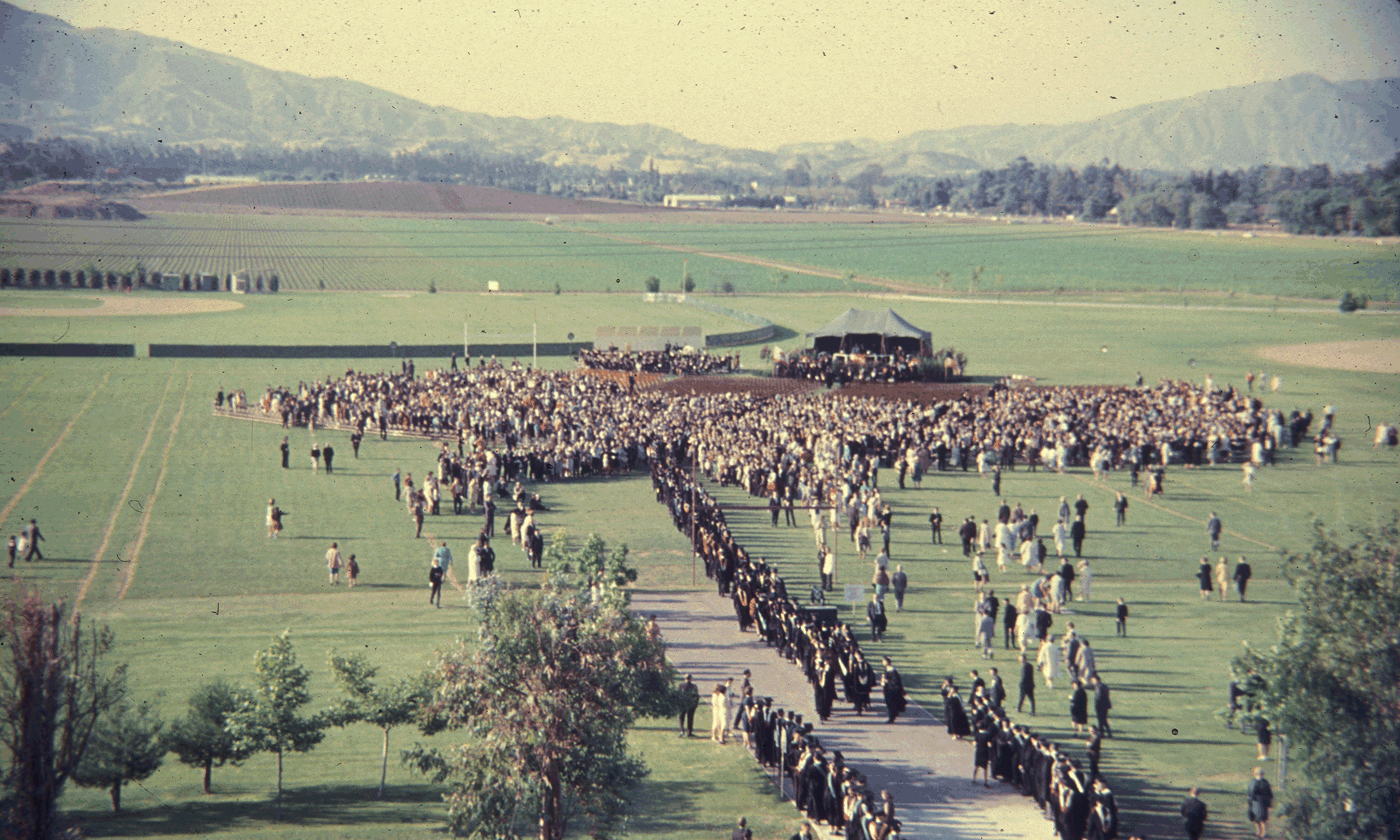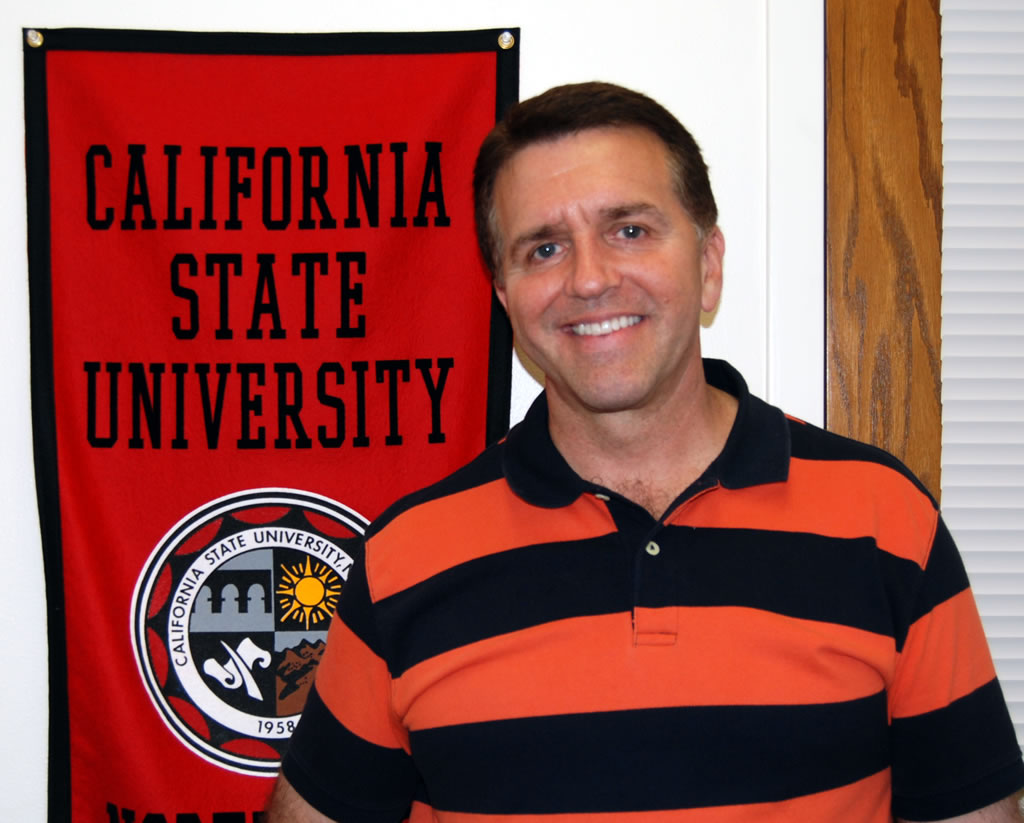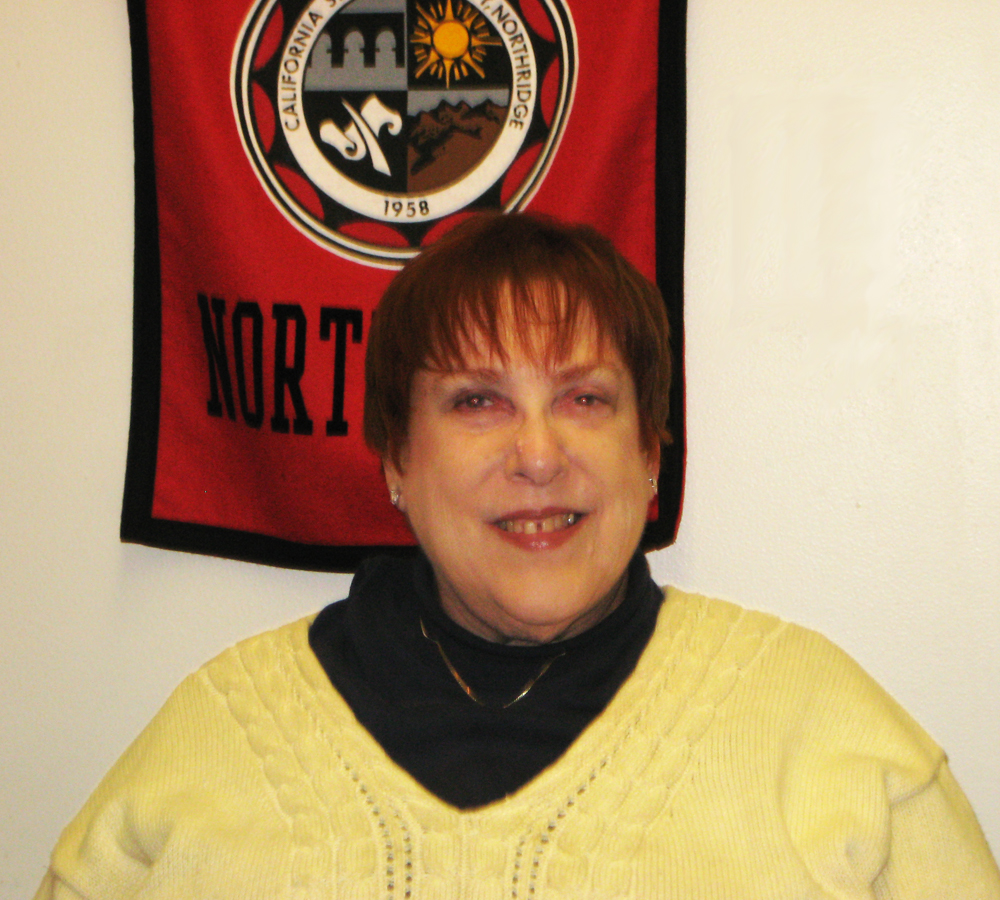My name is Steve Ford. I graduated in January 1985 in Speech Communication, which is today Communications Studies, but I was proud to be a Speech Communication major, and initially began as a marketing major, but wanted to be into Communications for broadcast and/or, marketing agency work, like advertising agency and public relations agency work. So I crafted a special option in the speech communication department which allowed me to have a triple major: one third journalism, one third marketing, and one third speech.
My dad was a professor of Sociology here from 1958 to the late ’80s or early 1990s — I don’t know the date that he retired. But that let me really grow up on this campus.
People think Speech Communication is all about talking and standing at a lectern, you know, and blabbing away on rhetoric. I found the Speech Communication Studies program to be fantastic from the standpoint of understanding writing for broadcast, understanding rhetorical discourse, writing to persuade, advertising writing, interpreting and evaluating communication and understanding the theory of communication, world views of communication and all the theoretical things that you don’t think you would get, and I say that just to give a plug for the depth and academic side of Communications Studies. Really powerful information.
It actually makes me feel a bit like Rip Van Winkle, you know, to come back here today because I blink my eyes and wake up and I come back in 2009 and there’s nine new buildings. I parked my car over in the parking lot that’s east of the University Student Union, and I recognize the parking lot, but you know, I walk no more than twenty-five, thirty seconds into the University Student Union and I see a dramatically different structure. I was on the board of directors of the University Student Union in 1984 and 1985. I was very involved there. So I have both affection for what I see on the campus today and also sort of shock and dismay because many of the open, green-lawn walk areas are now concrete buildings. But it’s tastefully done, and I still see the orange grove, so I must tell you that so long as the orange grove is here on this campus I will forever allow and bow to the expansion of the campus to build more concrete. But that orange grove has to stay.
When I look back at the difference between me today and what I would have been, say, if I hadn’t gone to Cal State Northridge, that education that I was describing — with the unique major that I had through the Speech Communications department — enabled me to do everything I’ve done in the 25 years since then. I’ve been in management, advertising agencies, public relations agency work, I’ve hosted a national TV show on the Home & Garden television network, I’ve done radio, television, print journalism, using the journalism I studied here. I continue to be motivated and excited about my career with the studies that I took here that have enabled me to be a better communicator, professionally, and make a living at it in the years since graduating.
CSUN makes a powerful difference. You are influenced by what was positive here at CSUN far beyond what you are aware of when you are going to school here. It takes you forward to open options and awareness that you didn’t know — you didn’t have — until you got here. And then by whatever studies you go into, suddenly a whole new world opens up and, depending on how much vigor and enthusiasm you bring, CSUN meets you and pulls you forward.



